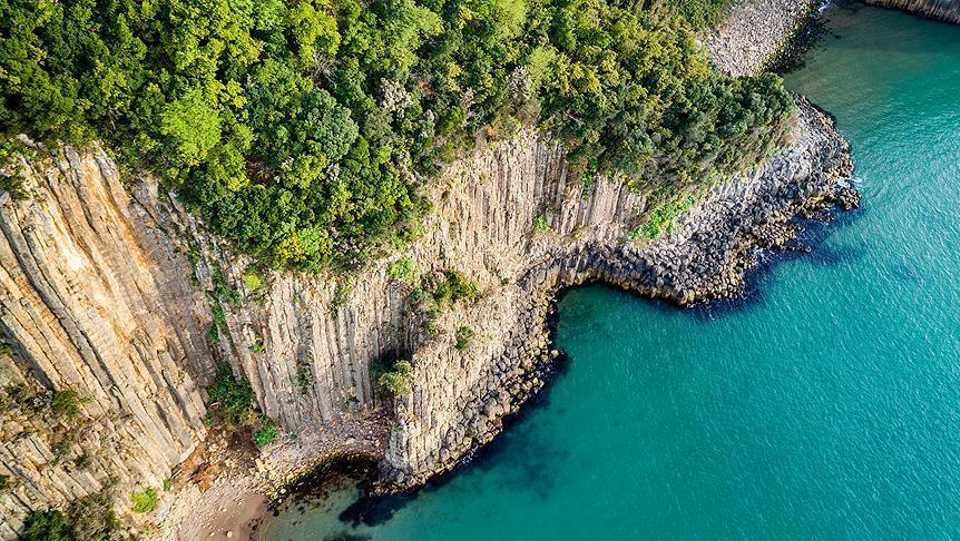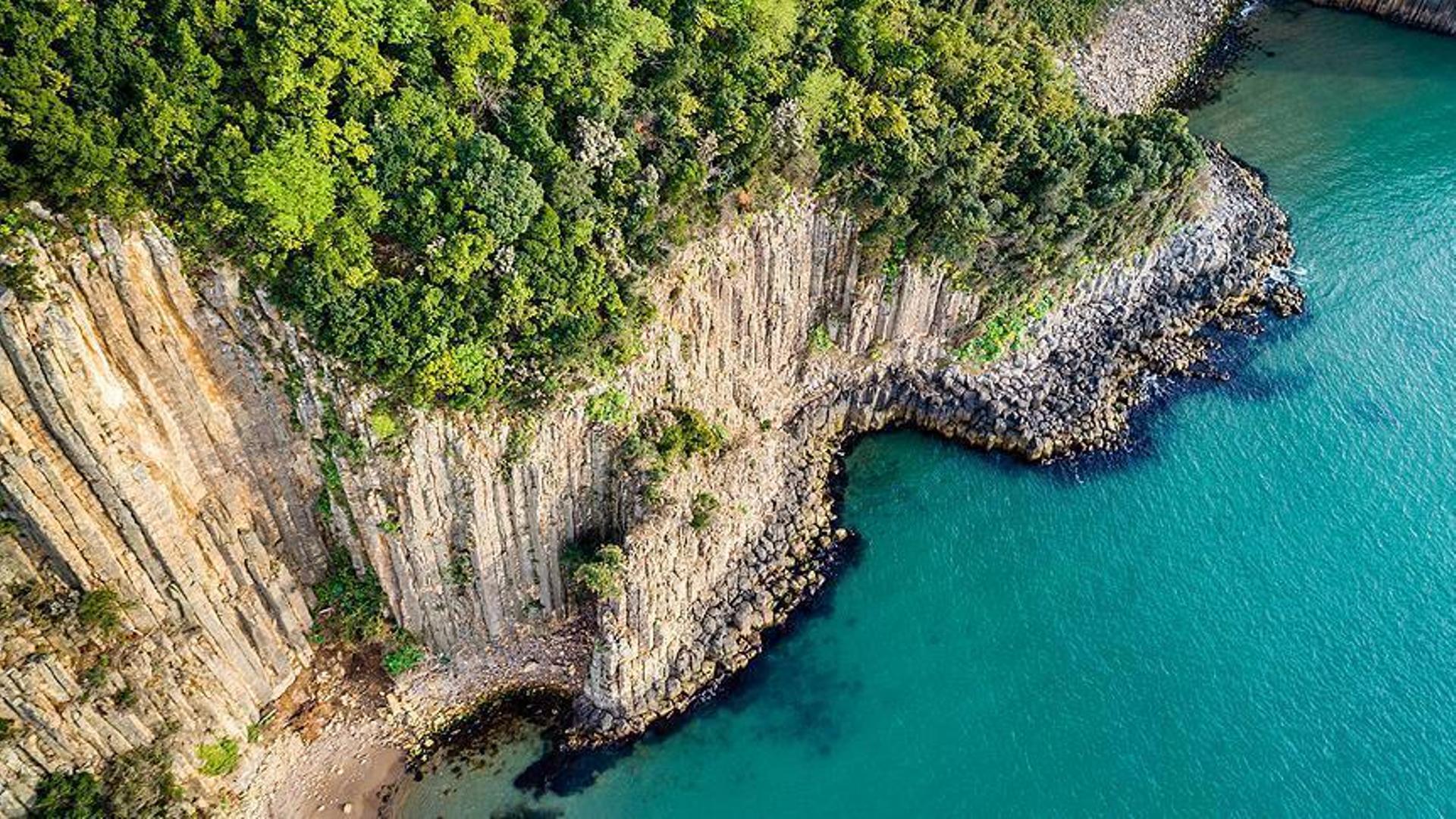
Rare basalt columns in northern Turkey is fast becoming one of the most popular tourist destinations since it was opened for tourism earlier this year.
Around 40,000 people visited the 80-million-year-old site in Bartin province during the first four months after it was opened to the public.
Located on Bartin’s Guzelcehisar beach on Turkey’s Black Sea coast, the columns were formed after lava flowed from volcanos and crystalised it as it cooled, providing a stunning landscape with geometric columns.
The columns turn the area into “a wonder of nature”, said Fuat Dursun, the provincial director of culture and tourism.
80 milyon yıl önce oluşan dünyada sadece 4 ülkede bulunan Bartın Güzelcehisar Lav Sütunları
— YILMAZ TUNÇ (@yilmaztunc) April 8, 2018
(Guzelcehisar basalt column)
Yürüyüş yolu, teraslar ve rekreasyon Projesinin gece görüntüsünü merak ederek Güzelcehisar’a geldik. Güzelcehisar akşamda bir başka güzel. pic.twitter.com/GXQvLNVUNX
“The biggest feature is having these 80-million-year-old basalt columns. Lava flowing from volcanos crinkled and formed the fracture pattern. Thus, pentagonal and hexagonal-shaped columns were formed,” he said.
Highlighting that the formations in Guzelcehisar were different than the others in the world, Dursun added said, “Basalt columns in the world are horizontal, our columns are both horizontal and vertical.”
For this reason, authorities wanted to open the area for tourism as well as to provide an added value for the local people under a project carried out together with the Bartin University, he noted.
Citing the number of visitors, Dursun said: “Our goal is to increase the number to 100,000-200,000, to open the basalt columns for international tourism and to make it a focus of interest for domestic and foreign tourists.”
Restaurants, cafes and bungalow houses are going to be built around the wooden walking trails as part of the project.
The area was designated as a natural monument by the Turkish Agriculture and Forestry Ministry in 2017.
Other basalt column locations are in Northern Ireland, Scotland and California.










Discussion about this post